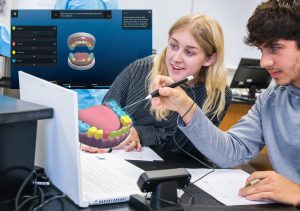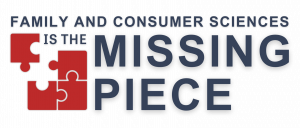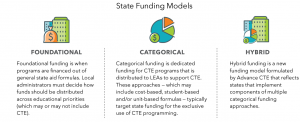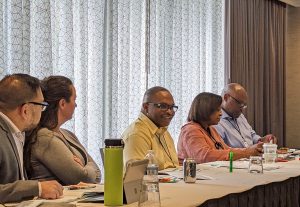 In today’s evolving educational landscape, augmented and virtual reality (AR/VR) are transforming traditional learning. Leading this change is zSpace, a company that uses immersive AR/VR technology to help learners in Career Technical Education (CTE) explore careers and build skills. This post highlights how zSpace supports career readiness through career awareness, exploration, and preparedness.
In today’s evolving educational landscape, augmented and virtual reality (AR/VR) are transforming traditional learning. Leading this change is zSpace, a company that uses immersive AR/VR technology to help learners in Career Technical Education (CTE) explore careers and build skills. This post highlights how zSpace supports career readiness through career awareness, exploration, and preparedness.
Career Awareness: Introducing Possibilities
 A challenge in education is helping learners grasp the variety of careers available to them. Traditional methods often struggle to engage learners with real-world experiences. zSpace changes this by allowing learners to virtually explore careers—from marine biology to architecture—giving them hands-on insight into day-to-day job responsibilities.
A challenge in education is helping learners grasp the variety of careers available to them. Traditional methods often struggle to engage learners with real-world experiences. zSpace changes this by allowing learners to virtually explore careers—from marine biology to architecture—giving them hands-on insight into day-to-day job responsibilities.
zSpace’s interactive simulations let learners visualize themselves in various roles, sparking curiosity and helping them make informed career choices.
Career Exploration: Engaging in Real-World Simulations
After sparking interest, zSpace enables deeper exploration of specific fields. Learners interested in healthcare, for example, can use virtual anatomy applications to diagnose ailments or explore muscle movements. Those leaning toward engineering can design and test prototypes in a virtual environment, gaining practical knowledge of product development.
This active learning helps students build critical thinking and problem-solving skills, boosting their confidence and readiness for the next step.
Career Preparedness: Building Skills for the Future
As learners focus on their chosen fields, developing the right skills becomes crucial. zSpace offers virtual training modules that help learners practice industry-relevant techniques, such as virtual welding or automotive troubleshooting. These simulations provide instant feedback, allowing learners to master competencies at their own pace.
zSpace’s content is aligned with current industry standards, ensuring learners gain up-to-date skills valued in the job market. This prepares them for certification exams and career success.
Preparing the Next Generation
 By combining career awareness, exploration, and preparedness, zSpace equips learners with the tools needed for future careers. With AR/VR shaping the future of workforce development, learners using zSpace are better prepared to pursue careers that drive innovation.
By combining career awareness, exploration, and preparedness, zSpace equips learners with the tools needed for future careers. With AR/VR shaping the future of workforce development, learners using zSpace are better prepared to pursue careers that drive innovation.
The journey from classroom to career has never been more exciting, and with zSpace leading the way, students have the opportunity to explore, learn, and succeed in a fast-changing world.
Unlock your learners’ potential in your state with zSpace’s immersive AR/VR career exploration before opportunities pass them by. Contact zSpace today for a personal demonstration: https://info.
Michael Carbenia, Senior Executive Director of Workforce, zSpace [email protected]
The views, opinions, services, and products shared in this post are solely for educational purposes and do not imply agreement or endorsement by Advance CTE, nor discrimination against similar brands, products, or services not mentioned.



 The importance of comprehensive student career preparation for life’s modern challenges is increasingly apparent in the evolving landscape of education and workforce development. Family and Consumer Sciences (FCS) is a pivotal solution, bridging career preparation and employability skills for holistic student readiness across various career facets.
The importance of comprehensive student career preparation for life’s modern challenges is increasingly apparent in the evolving landscape of education and workforce development. Family and Consumer Sciences (FCS) is a pivotal solution, bridging career preparation and employability skills for holistic student readiness across various career facets.

 Project Focus
Project Focus
